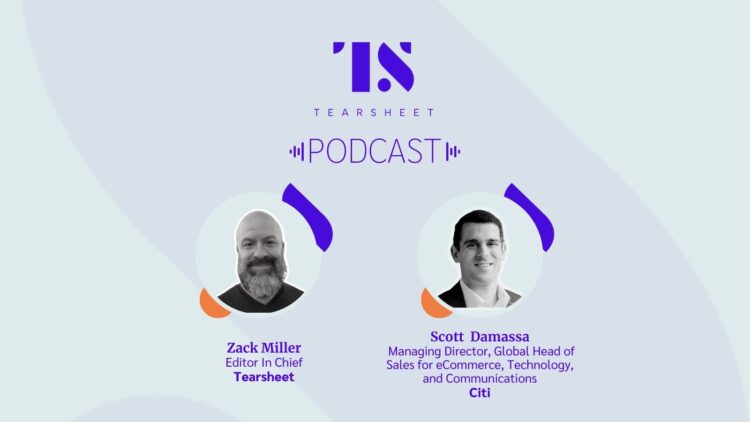How Citi is rising to meet increased global demand for faster payments with Scott Damassa
- There are some interesting knock-on effects as the world moves to faster payments.
- Citi's Scott Damassa discusses the challenges and implications of adopting real-time payment systems in today's finance sphere.

One of the themes we’ve been charting over the past couple of years is the impact of moving to a world defined by real time – or close to real time – financial services. Real time payments isn’t just a tweak, a turning of the speed dial – it actually changes value propositions, expectations, and risk management the financial services industry has with its clients, both consumer and commercial.
What’s also interesting is that as business becomes more global, the larger banks have moved in the oppositie directions, for the most part backing away from becoming global banks, entrenching themselves in specific markets.
Citi remains one of the few that maintains this positioning of being global. And as a global organization, Citi works has businesses with international aspirations through its Treasury and Trade Solutions Group. TTS is a rising star in CEO Jane Fraser’s plan to steer the bank forward. She actually called it a “thing of beauty” in a recent earnings call.
I’m joined by Scott Damassa, Managing Director and Global Head of Sales for eCommerce, Technology, and Communications at Citi. Scott has had an upfront and close look at the needs of global companies and what they’re really looking for from their financial services providers. And speed seems to be near the top of all lists. We talk about the significance of speed in payment processing across different industries and how it can impact both clients and companies. Scott also shares what specific benefits he’s observed when organizations prioritize speed in payment processing. We discuss the importance of multi-stakeholder partnerships in servicing global organizations and how FIs and fintechs can best collaborate.
Our conversation is interesting in that it’s about the present – but also the future – of Citi itself, as the firm formulates messaging around being a global partner bank for fintech and other tech firms.
Here’s my discussion with Citi’s Scott Damassa.
The big ideas
- Importance of Speed in Payment Processing: “Speed has always been an amazing enabler for technology and for new business applications in general.”
- Impact of Slow Payments on Service Delivery: “The payment can actually slow down the delivery of a good or a service because it introduces a risk-based element.”
- Cross-Border Complexity in Banking: “In the banking world, cross-border transactions create complexity, particularly in terms of speed.”
- Elasticity of Demand with Seamless Payments: “There’s an elasticity of demand for different services if the payment fades to the background.”
- Technology Behind Instant Payments: “We can fund that from their US dollar account and then pay out in Israeli shekel, for example, using a Citi account in country.”
- Balancing In-House Development and Partnerships: “We’ve got a build, buy, partner strategy, which is a huge change from like 10 or 15 years ago.”
- Challenges and Opportunities in Instant Payments: “The stakes are just that much higher for these types of payments to make sure that when you do have something, you’re not talking like 95% success rates, you’re talking like 99.99999.”
Listen to the full episode
Subscribe: Apple Podcasts I SoundCloud I Spotify I Google Podcasts


